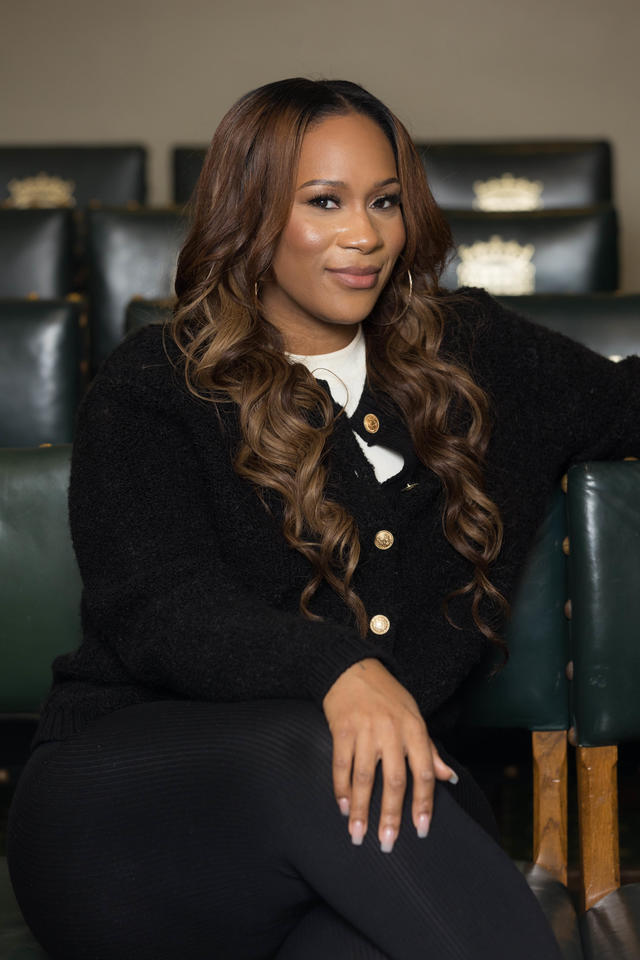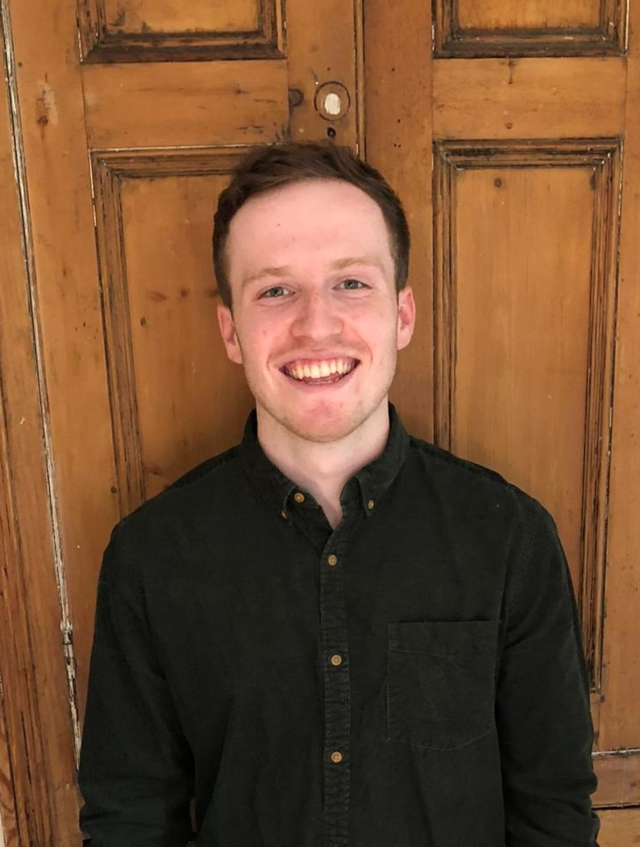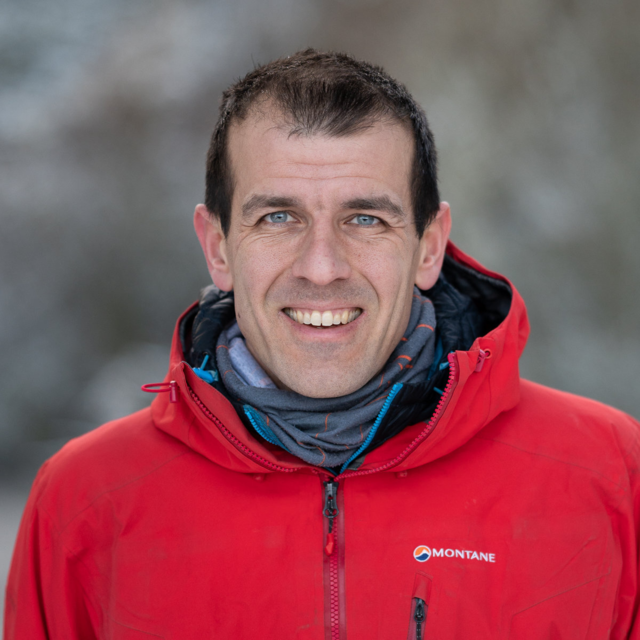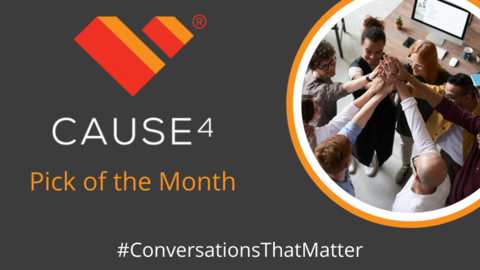Pick of the Month – July 2024
2 July 2024 | By Lucy Pratt
This month we spotlight three changemakers: Leanne Pero, a breast cancer survivor who fights for Black and POC cancer patients through her foundation; Tom Allanson, who uses his social research expertise to advocate for equality with The Equality Trust; and Johannes Petersen, who founded Àban, a social enterprise providing free outdoor education for young people. Read their inspiring stories and learn more about their causes in July's Pick of the Month!
Charity Leader of the Month – Leanne Pero, Leanne Pero Foundation

Leanne Pero MBE is a multi-award-winning social entrepreneur, speaker, author, host and breast cancer survivor. She set up her dance company "The Movement Factory" when she was just 15 years old, since then she has successfully fundraised over half a million pounds to run community dance programs for young people all over London and is an official Nike London Partner. After being diagnosed with breast cancer in 2016 at the age of 30, Leanne then set up her namesake charity, The Leanne Pero Foundation, that houses the infamous Black Women Rising Cancer Support programme. The charity offers vital help, information and practical advice, primarily for people of colour (POC) cancer patients and cancer survivors.
Leanne explained a bit more about her work and mission:
Having been through my own breast cancer diagnosis and treatment, I strongly feel no one should suffer in silence or feel isolated when faced with a personal cancer journey.
We want the challenges faced by POC going through cancer to be visible, so that they feel included and part of the overall cancer narrative (which is imperative for raising awareness in these communities), as well as educating healthcare providers, support services, charities and brands so they can tailor their services for POC.
We aim to empower our patrons through their cancer journey via our bespoke projects, events and initiatives.
She explained the journey to Black Women Rising’s inception and her role as CEO:
“In my quest to find the right services to help me during my own cancer journey, I realised that the NHS lacked cancer support packages for black cancer patients. From there I saw that stories from my community were being excluded from the UK’s mainstream media outlets, magazines & perhaps most importantly – from reputable annual cancer campaigns by brands and charities failing miserably at diversifying their campaigns. All this did was further fuel the false narrative that cancer is “not a black disease”.
I began meeting women and men who were either misdiagnosed, not offered mental health support and generally left feeling excluded from communication with their consultants which echoed the other health inequalities within our community. I knew I needed to do something and that is where the charity started.
The role of CEO of the charity is multi-faceted - from working with my small but perfectly formed team who support the day-to-day running of the charity, to forging and maintaining vital relationships with our partners, sponsors and supporters to ensure the sustainability of the charity. Running a charity is not for the faint-hearted, every day is different and I have experienced many highs and lows over the last 5 years. I will always be proud of everything we have achieved as a small grassroots charity over that time, but there is still so much more to do.”
Leanne offered advice to prospective leaders:
“My main piece of advice would be to find your WHY. This is something you will come back to over and over again, so it is important that you have clarity on this.
Further to that, I would say to remember to look after your own wellbeing. You cannot lead from the front if you are not doing this.”
She hopes for change in her sector, with more equitable health outcomes for black and POC cancer patients:
“As strange as it sounds, in an ideal world, The Leanne Pero Foundation would not need to exist.
For that to be a reality we need more research and data from within the black community to get a better understanding of why we have the UK’s poorest outcomes and mortality rates from treatable cancers. We know a little about what causes this; such as late diagnosis, lack of awareness and education, unhelpful myths and taboos and patients being dismissed when presenting with their initial symptoms - but we need to know more. From there, we can continue to tackle the disparities and health inequities and educate healthcare professionals and other charities.”
Keep up to date with Leanne’s work on her website and learn more about the Black Women Rising programme here.
Trustee of the Month – Tom Allanson, The Equality Trust

The Equality Trust (TET) is a UK charity focused on reducing economic and social inequality. TET campaigns for policy changes at national, local, and individual levels, advocating for initiatives such as greater employee ownership, implementation of the Socio-Economic Duty, and disclosure of pay ratios. They push for progressive taxation, social security reform, and electoral influence to reduce inequality. TET collaborates with various organisations and groups, including the Fight Inequality Alliance and All-Party Parliamentary Group on Poverty, striving to reduce inequality and facilitate cooperative efforts across society.
Tom reflected on how he became a trustee:
“After a few years of working in several operational roles for Greater Manchester Mayor’s Charity, a regional funder of frontline homelessness organisations, I gained quite a varied experience of what goes into operating a charity. I worked closely with our Board of Trustees at the time and found that this experience ‘demystified’ what it was to be a Trustee of a charity.
I found that Boards with a real mix of people and varying experiences tended to be more effective and have richer discussions around the direction of the charity. For this reason, I felt I could bring some operational experience to a Board, so applied for my first Trustee position with The Equality Trust (TET), a charity whose mission I am passionate about and who I’d followed closely for some time. I started at the beginning of this year as their youngest Trustee and since have had my first full Board meeting and chaired a finance committee.”
Tom went on to tell us about the work of TET and what inspired him to become a trustee:
“TET is full of lovely staff and Trustees all committed to TET’s vision of dismantling structural inequality in the UK. I have a background in social research and I’m particularly interested in the hard-hitting research TET produces and contributes to that highlights inequality and sets the policy agenda (have a look on our website!).”
When talking about the challenges of his trustee role, Tom said:
“While I’m new, the biggest challenge so far has been balancing my time between this and a new job. I have found that carefully planning my weeks helps with this and means I have been able to commit enough time to make meaningful contributions to the charity.”
Tom offered some advice to aspiring trustees:
“My advice to anyone thinking of becoming a Trustee is to think about the causes you're passionate about and to get in touch with charities working in that space. A lot of small charities are desperate for Trustees and charities are always keen to diversify their Boards. Don’t be put off by never having been on a Board, there’s loads of training and networks out there to help.”
Keep up to date with The Equality Trust’s work on Twitter @equalitytrust or visit their website.
Social Entrepreneur of the Month – Johannes Petersen, Àban

Johannes Petersen is the Founder and CEO of Àban, a Scottish outdoor education charity and award-winning social enterprise. Àban runs Scotland’s only independent Duke of Edinburgh (DofE) Open Award group alongside weekly free-to-access outdoor youth groups for biking, mountaineering, and open-water swimming. The charity also offers a range of commercial activities, including private guiding, Holiday Camps, and an outdoor equipment charity shop on eBay, all of which help to pay for the free-to-access activities.
To begin our conversation, Johannes talked to us about the inspiration for Àban:
“The idea for Àban was born out of the lockdown.. I was teaching outdoor education at a local college and could see how the teenagers I worked with were declining in terms of their mental health and happiness due to being forced to study and live much of their lives online. Watching this happen before my eyes was awful and I became determined to do something to tackle this. The first step was to test whether the local community wanted an outdoor group for young people. I ran a pilot programme in January 2021 to gauge interest and had 70 applications for six places. It was clear families wanted something better for their children and this is where Àban was born.
From the pilot programme, we developed a wider range of activities, inspired by the approach of Adventurous Learning that outdoor education should be local and continuous, allowing children and young people to explore their immediate environment and do so over a long period of time. Throughout the early stages of Àban, I also received invaluable help from and advice from the Impact Hub in Inverness. I can’t talk about the early stages of Àban without mentioning the help and guidance they gave to me.”
Despite the demand for Àban in the local community, developing the social enterprise has not been without its challenges:
“It was about 18 months before I could start taking a wage from Àban that was able to support me. I was lucky that, during that time, my wife had a steady income and I could do a bit of freelance outdoor work to help tide us over. This was definitely one of the biggest challenges and not something to be underestimated by anyone thinking of starting a social enterprise.”
Johannes went on to tell us about the most rewarding aspects of his work:
“Receiving the thanks of young people we have worked with is easily the most rewarding part of my work. We recently heard from someone who had engaged with our services and been a young leader, helping us run our free-to-access activities. She said that our work, and help preparing her for university interviews, had helped her personal development immensely and meant she was now the first person in her family to attend university. The ability to have this impact on a young person’s life is such a privilege and motivates all that we do at Àban.
As a teenager, I was in a very similar position to some of the young people we now work with, looking for guidance and support. One of my teachers introduced me to rock climbing and being able to continue this work and use the outdoors to help young people is of great personal significance to me.”
To finish, Johannes offered some advice to aspiring social entrepreneurs:
“Think very carefully about the nature of your social enterprise. There is a lot of duplication in the third sector and you need to make sure that what you are working on is really going to make a difference and not just replicate good work that is already being done. A good way of identifying if there is a need is to run a pilot project like we did for Àban. Give yourself a small budget and see how it goes. If the pilot is a success, my next piece of advice would be to start concentrating on your business planning. Without careful sustainability plans and cashflow forecasts, you won’t be able to maximise your impact.
A final piece of advice is to utilise the power of being a social enterprise. Our charity shop and paid for events like the Kessock Ferry Swim allow us to keep other activities free of charge or, at least, very heavily subsidised.”
To find out more about Àban, visit their website.




